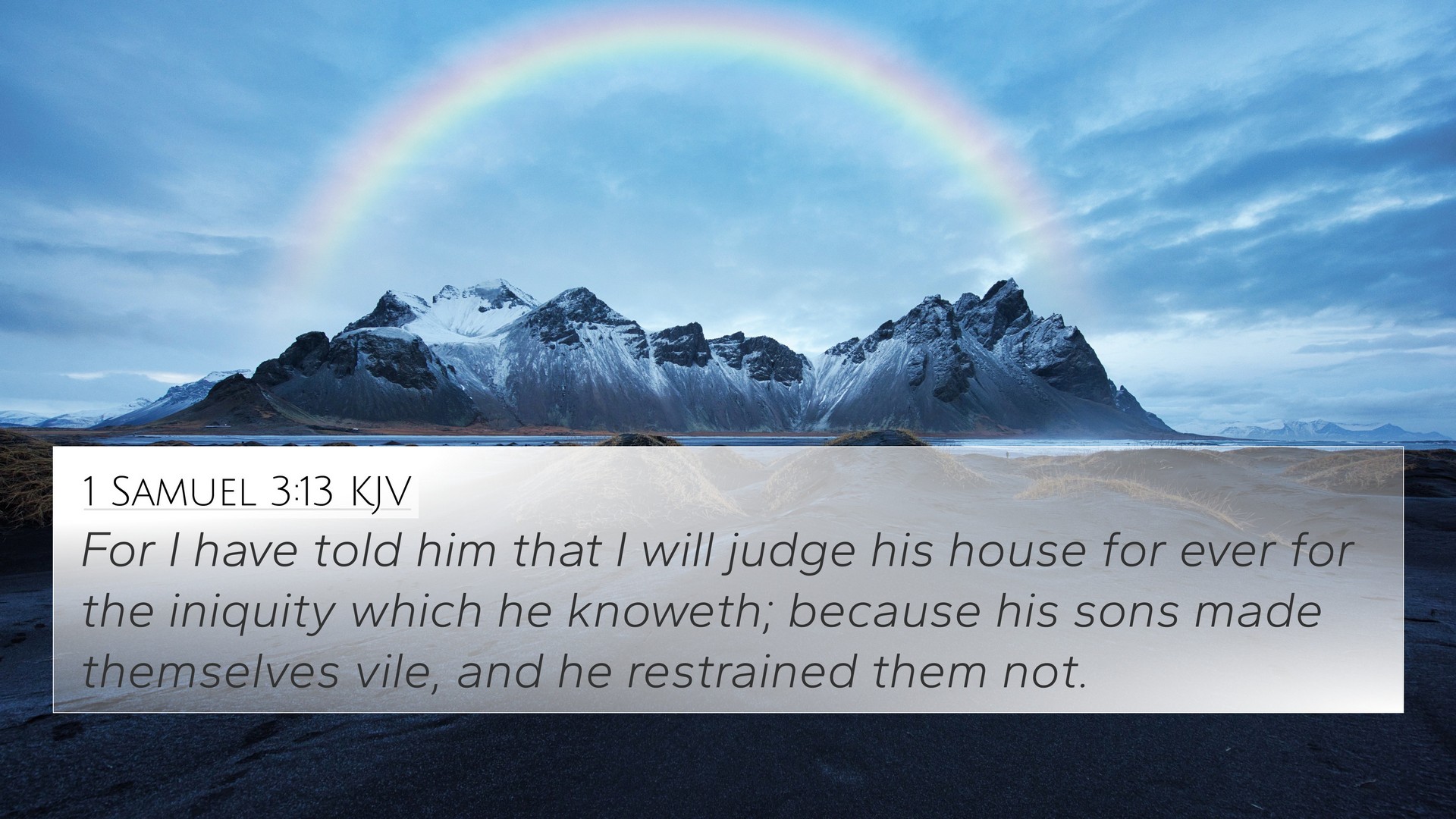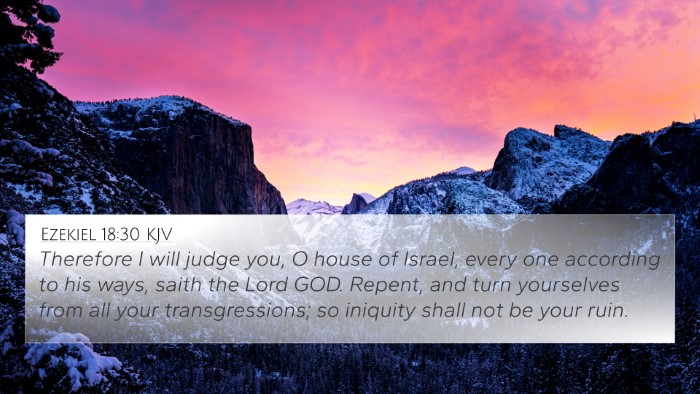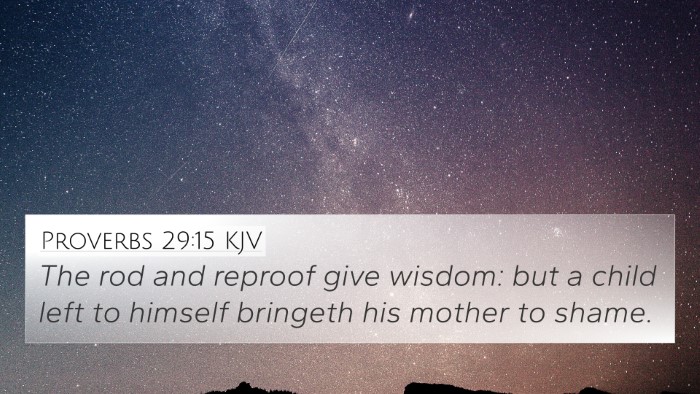Understanding 1 Samuel 3:13
Bible Verse: "For I told him that I would judge his house for ever for the iniquity which he knoweth; because his sons made themselves vile, and he restrained them not." - 1 Samuel 3:13
Verse Meaning and Context
This verse is a crucial part of the narrative in which God reveals to Samuel the judgment that is to come upon the house of Eli due to the transgressions of his sons, Hophni and Phinehas. The implications of this verse highlight a significant theme in Scripture regarding parental responsibility, divine judgment, and the weight of sin.
Insights from Public Domain Commentaries
-
Matthew Henry:
Henry notes that Eli's failure to correct his sons when they committed grievous sins was a direct affront to God. His inaction contributed to the spiritual decline of Israel, and thus a severe judgment was pronounced against his household.
-
Albert Barnes:
Barnes explains that the phrase "I would judge his house for ever" indicates a perpetual judgment on Eli’s lineage due to their disobedience. This serves as a warning to all leaders about the consequences of negligence in moral accountability.
-
Adam Clarke:
Clarke discusses the gravity of Eli’s situation, emphasizing that while Eli had been a faithful priest, his failure to control his corrupt sons led to divine retribution. He also highlights the importance of correction and discipline in maintaining spiritual integrity.
Key Themes
- Parental Responsibility: The verse teaches the importance of correcting one’s children, particularly in spiritual matters, underscoring the consequences of lax parenting.
- Judgment: It reflects God’s justice and the seriousness of sin, especially when leaders fail to act against evil.
- Divine Communication: The progression of God’s message through Samuel illustrates the significance of prophetical revelation and God's unyielding commitment to address sin.
Cross-References
This verse resonates with multiple other scriptures, revealing the interconnectedness of Biblical teachings. Here are notable cross-references:
- 1 Samuel 2:12-17: Details the sinful behavior of Eli's sons in their priestly duties.
- Proverbs 13:24: "He who spares his rod hates his son, But he who loves him disciplines him promptly."
- Hebrews 12:7-11: Discusses seeing divine discipline as a sign of God’s loving guidance.
- Ephesians 6:4: Commands fathers not to provoke their children to wrath, but to nurture them in God's ways.
- Matthew 23:37-38: Jesus' lament over Jerusalem for failing to heed the call for repentance and disregarding God’s prophets.
- Isaiah 3:1-12: Speaks of judgment upon the leaders and people of Israel for their transgressions.
- Jeremiah 7:28: The Lord expresses the futility of listening to a rebellious people.
- Romans 2:21-24: Highlights the hypocrisy of teaching others while failing to adhere to the very commandments one preaches.
- Revelation 3:19: Jesus speaks about His love manifesting as discipline and rebuke.
- 1 Peter 4:17: Discusses judgment beginning at the house of God, drawing a parallel to the fate of Eli’s household.
Practical Applications
The themes presented in 1 Samuel 3:13 can inspire believers to reflect on their roles within their families and communities. It compels leaders and parents alike to consider the weight of their responsibilities seriously:
- Embrace Accountability: Understanding that actions have consequences encourages us to take ownership of our decisions.
- Prioritize Spiritual Guidance: Making corrective actions in accordance with God’s word is essential for spiritual growth and maintaining righteousness.
- Seek Divine Discernment: Continuous prayer for wisdom is necessary to navigate the complexities of discipline and leadership.
Conclusion
1 Samuel 3:13 serves as a sobering reminder of the expectations that God has for those in positions of authority, particularly regarding familial duty and moral leadership. Through cross-referencing this verse with other Biblical texts, believers can deepen their understanding of divine justice, accountability, and the serious implications of neglecting God's commandments.
Further Exploration of Cross-Referencing
For those looking to expand their understanding of the connections between Bible verses, utilizing various tools for Bible cross-referencing can greatly enhance study sessions. A Bible concordance or a cross-reference guide can help identify related verses and explore themes comprehensively.

















